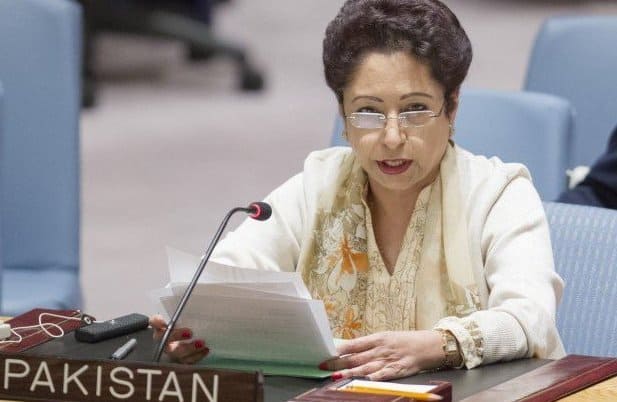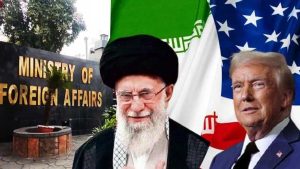UNITED NATIONS – Pakistan has welcomed as “historic” the first-ever agreement among U.N. member states on an all-encompassing Global Compact to better manage international migration, address its challenges, strengthen migrant rights and contribute to sustainable development.
“This is truly a historic moment when multilateralism has triumphed,” Ambassador Maleeha Lodhi said after the text of the ‘Global Compact for Safe, Orderly and Regular Migration’ was finalized on Friday that involved two years of discussions and consultations among member states.
The United States was the only country to disassociate itself with the negotiating process and declined to become a party to the Compact even though it is non-binding.
Washington had initially participated in the negotiations but abruptly withdrew last December under orders from the Trump administration, which has taken an increasingly hostile view toward cross-border migrants, refugees, and asylum seekers. It argued that such multinational agreements subverted the power of individual governments to control national borders.
The agreement will be formally adopted at an Intergovernmental Conference, which will be held in Marrakesh, Morocco, on 10 and 11 December. Louise Arbour, Special Representative for International Migration, will serve as the Conference’s Secretary-General.
In her remarks, the Pakistani envoy said the document draws a clear distinction between refugees and migrants, upholds the human rights of all migrants regardless of their status, provides clear guidelines to strengthen migrant-inclusive service delivery systems, promotes immigrant integration and regularization, provides a gender-responsive and child-sensitive approach and addresses the vulnerabilities of migrants.
“Our challenge now is to keep this process alive in a climate that is uncertain, to say the least, and when, in some countries false anti-immigrant narratives still hold sway,” she said, while commending the efforts of Ambassadors of Mexico and Switzerland, who served as co-facilitators in the negotiating process to bring about consensus.
“We must now agree and undertake our shared responsibility for the protection and realization of the rights of all migrants, to fully realize the immense potential and to harness the benefits of regular migration.”
Although the Compact is non-binding, it will set out a framework of principles and practices that can facilitate safe, orderly, and regular migration.
As a result, Ambassador Lodhi said and it would have a “profound impact on how we think about migration and treat migrants.”
The Pakistani envoy also underscored the need for UN support to member states to develop “rigorous but realistic” plans and provide funding and tools to actually implement them.
“Our success rests on mutual trust, determination and solidarity to fulfill the 23 objectives and commitments contained in the GCM (Global Compact on Migration),” she added.
In a statement, UN Secretary-General Antonio Guterres called the Compact significant achievement. He said it reflected “the shared understanding by Governments that cross-border migration is, by its very nature, an international phenomenon and that effective management of this global reality requires international cooperation to enhance its positive impact for all. It also recognizes that every individual has the right to safety, dignity, and protection.”
Calling today a “historic moment,” General Assembly President Miroslav Lajcak, spelled out the Compact’s enormous potential.
“It does not encourage migration, nor does it aim to stop it. It is not legally binding. It does not dictate. It will not impose. And it fully respects the sovereignty of States,” he stressed.
Instead, he continued: “It can guide us from a reactive to a proactive mode. It can help us to draw out the benefits of migration and mitigate the risks. It can provide a new platform for cooperation. And it can be a resource, in finding the right balance between the rights of people and the sovereignty of States.”
“And, in December,” Lajcak added, “it will formally become the first comprehensive framework on migration the world has ever seen.”
Also taking the floor, Deputy Secretary-General Amina Mohammed, drew attention to the profound issues that migration raises, such as sovereignty and human rights; around what constitutes voluntary movement; the relationship between development and mobility; and how to support social cohesion.
“This compact demonstrates the potential of multilateralism: our ability to come together on issues that demand global collaboration, however complicated and contentious they may be,” she pointed out.
Arbour, Special Representative for International Migration, asserted that human mobility will always be with us,
“its chaotic, dangerous exploitative aspects cannot be allowed to become a new normal.” “The implementation of the Compact will bring safety, order and economic progress to everyone’s benefit,” she underscored.













